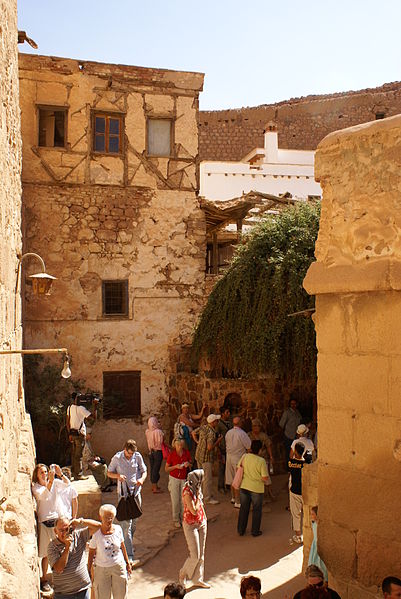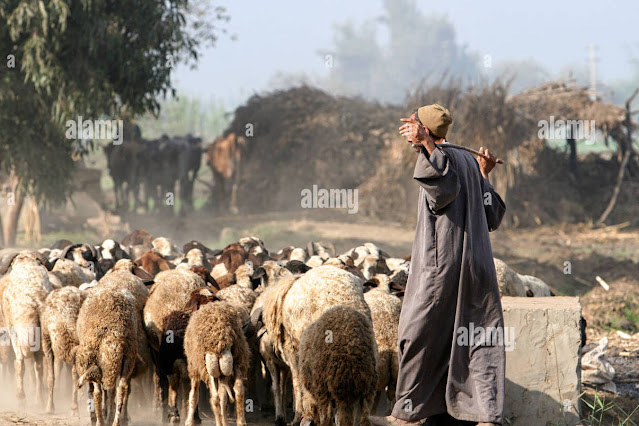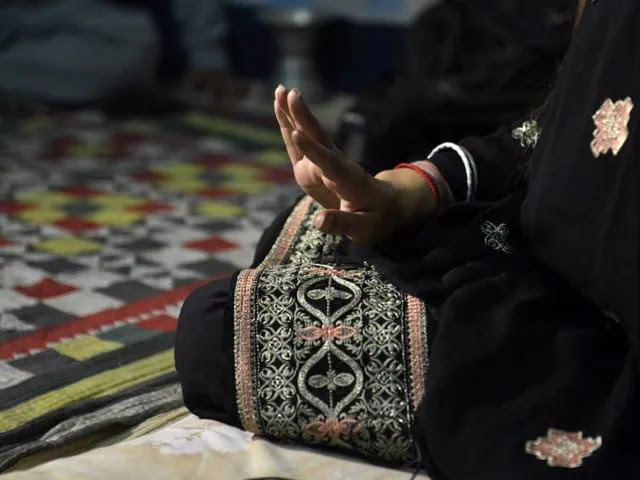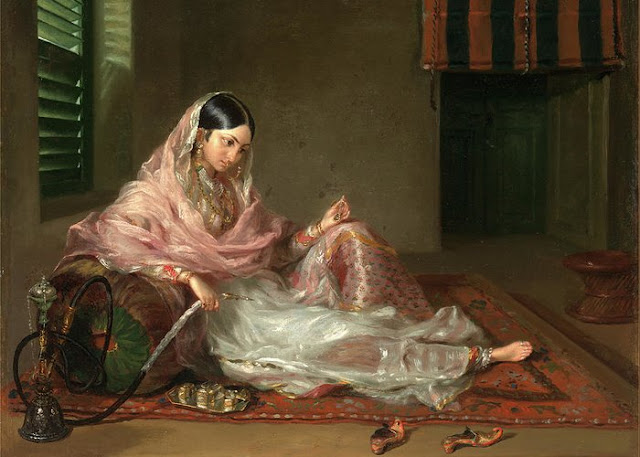Astonishing Story of Prophet Musa “The Prince of Egypt”.
Musa’s Life-Changing Predicament
Musa
(A.S) was born in Egypt and brought up by Pharaoh’s wife in the palace of
Pharaoh.
Musa
(AS) was a prophet that Allah sent to Bani Israel. When Prophet Musa killed an
Egyptian while supporting a person from Bani Israel, Pharaoh gave the order
that Musa should be captured. When Prophet Musa found out about this, he
decided to leave the city.
He arrived in Midian, fleeing from Egypt
where he had accidentally slain a brutal Egyptian slave master. Traveled for many weeks, and at last he
arrived at a place called Madyan.
His
clothes were sandy and he needed a bath, and he was short of food. The place
was strange and foreign to his eyes.
On
the outskirts of Madayan, Musa saw some people gathered around a well all of
whom wanted to water their animals.
Two Shepherd Girls: Daughters of Prophet Shoaib
He found two women waiting their turn, as they wanted to water
their sheep when the men folk dispersed
Musa went forward and asked the ladies, “Why
are you standing far away? To what tribe do you belong?” The young ladies who
were Shuaib’s daughters, replied, “We want to water our sheep but cannot do so
before the rush is over.
Our
father is aged and weak and has none to help him except us.” Musa who was till
then hearing with his head down now raised is head to find that the two
youthful shy ladies were figures of decent modesty. He was astonished.
He
thought over the entire issue and about the dignity and honor of the two
ladies. He then told them, “It is not advisable for you to keep standing here
in the presence of so many people.
If
you permit, I may take your sheep to the well and water them.” The respectable
ladies did not think it proper that an alien and unknown man should help them
by moving other people aside for giving water to their animals. So they did not
agree with Musa’s proposal.
 |
| Madyan (Saudi Arabia) where Prophet Shoaib used to live |
Prophet Musa asked again, “Is there any
other well over here?” The ladies replied, “There is a well nearby which is
covered with a big rock. When need arises some sandows remove the heavy rock
and get water therefrom.”
Prophet
Musa went to that well along with the two young ladies and removed the heavy
rock with his strong and powerful arms. The ladies gave water to their sheep
comfortably, thanked Musa (a.s) and went home.
Musa
replaced the rock and slept under a nearby tree as he was, by now, quite tired.
His feeling of loneliness grew and he prayed to God Almighty, “My Lord! I am in
dire need of Your Mercy and Kindness.”
When
the daughters reached home somewhat late Prophet Shuaib (A.S) asked them for
the reason of the inordinate delay. They narrated what had happened and also
told their father that the gentleman who helped them was resting under a tree
near the well.
Prophet Shuaib sent one of his daughters to summon Musa so
that he could observe him closely.
The
daughter approached Prophet Musa in a very modest and dignified manner and
said, “My father has called you so that he can give you the remuneration for
watering our sheep.”
Prophet
Musa was a solitary person in this area and he had no place of his own. So he
took benefit of this chance and accompanied the lady. Incidentally a strong
wind began to blow the dress of this beautiful girl who was trying hard to
cover her body properly.
Naturally
Musa’s eye fell on this unusual scene and it was indeed very distressing for a
messenger of God. He never liked that his eye should fall on another woman even
involuntarily.
So
he, with a view to protect his eyes, and also in order to safeguard the
dignity, respect and honor of the girl asked her, “Kindly stop for a while.
Let
me step forward and walk ahead of you. When there is crossroad, please throw a
stone to guide me in which direction I should walk further. In this way I will
reach your home in an appropriate manner – God willing.”
The girl also was, after all, a daughter of a God’s
messenger and she at once knew the intention of Musa.
So
she got all the more impressed with his strong moral character and told
herself: Indeed this gentleman, besides being righteous, also possesses very
high moral qualities.
Musa
entered the house of Prophet Shuaib (A.S) and saluted and after a while
narrated to the great old gentleman what had happened to him since his birth
until then.
Shuaib
said, “You may stay here fearlessly. You have distanced yourself away from the
reach of the Pharaoh. God Almighty has protected you.”
In this way, Musa the honest youth who had
traveled for hundreds of miles in red hot sandy land got a chance to breathe
comfortably in a distant city and that too in the house of a God’s messenger!
One day Prophet Shuaib told Musa, “I intend to give you one of my daughters in marriage but on condition that you live with us for eight years and look after the sheep.
If
you extend this stay upto ten years it would be much better. But, I make God a
witness that I am not putting any force on you. O Musa! I am among the
righteous servants of Allah and therefore I can never apply any kind of force
to anyone in any matter.”
Musa (A.S) agreed and married Shuaib’s daughter.
Her name was Safura, the girl who was sent
to summon Musa and who remembered that Musa was anxious to save his eyes from
falling on her body when the wind blew strongly.
By and by Musa completed ten years in Prophet Shuaib’s service
with perfect honesty and love and did his job pains takingly. He left no stone
unturned in taking full care of the sheep. On completion of his ten-year
service, Musa sought permission to leave for Egypt and visit his mother and
younger brother, Harun.
Musa (A.S.)’s return to Egypt and receiving the revelation
in Sinai Desert.
Shuaib
(A.S) allowed him and Musa (A.S) moved with his wife Safura towards Egypt.
During
this journey, on a very cold and dark night, Musa (A.S.) and his family lost
their way to Egypt.
They
continued walking in the dark when Musa (A.S.) witnessed a light/fire at a
distance. He told his family “Stay here, I see a fire, I hope I may bring you
from that you may warm yourselves.”
After entering the Sinai desert Musa decried a fire radiating on
a hill. When he went there he saw that there was a spruce fir tree from which
flames of fire leapt out but without burning the green tree!
Musa
was observing this phenomenon with abounding wonder when a voice reached his
ears from the direction of the tree:
It was a revelation from God saying: From now onwards you
are a messenger of God and a guide for His creation.
 |
| The Burning Bush in Saint Catherine Monastery-Mount Sinai (Egypt) |
And I have chosen you, so listen to what is
revealed [to you]. Indeed, I am Allah. There is no deity except Me, so worship
Me and establish prayer for My remembrance“.
 |
| Saint Catherine -Mount Sinai |
Thus
a shepherd attained his goal after serving Prophet Shuaib (A.S) wholeheartedly
for several years.
The
End
Disclaimer–Blogger has
prepared this short write up with help of materials and images available on
net/ Wikipedia. Images on this blog are posted to make the text interesting.The
materials and images are the copy right of original writers. The copyright of
these materials are with the respective owners.Blogger is thankful to original
writers.


.jpg)


.jpg)

.jpg)








